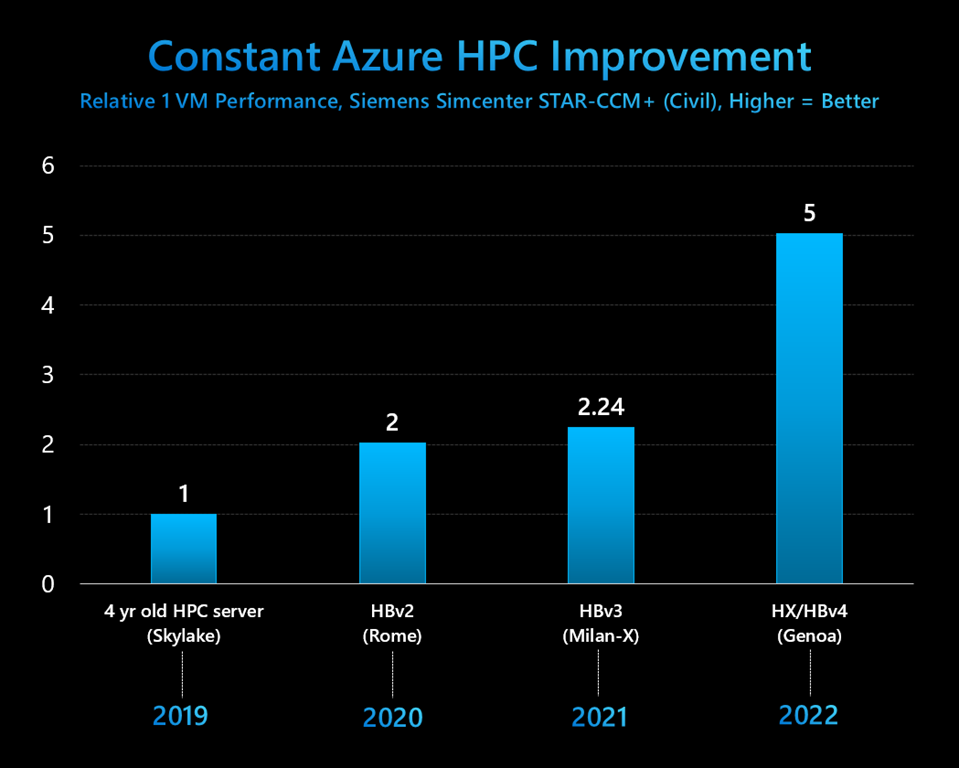
Last week, Microsoft announced two new virtual machines (VMs) for Azure HPC customers. The new HX-series and HBv4-series VMs are powered by 4th Gen AMD EPYC processors that promise cost efficiency and higher performance.
Azure HPC is a purpose-built cloud service that delivers storage, computing and data management services for high-performance computing (HPC) applications. Azure’s HPC tools enable users to perform large-scale mathematical tasks, time-based simulations, and statistical analyses.
The new virtual machines feature 400 Gb/s NVIDIA Quantum-2 CX7 InfiniBand, 800 GB/s of DDR5 memory bandwidth, and 80 Gb/s Azure Accelerated Networking. The HX-series and HBv4-series VMs also come with PCIe Gen4 NVMe SSDs. The new offerings deliver 2x performance improvements as compared to the HBv3 series. Moreover, the VMs also perform around 4-5x better than the four-year-old HPC server.

Azure virtual machines bring performance improvements for HPC workloads
The new VMs are optimized for various scenarios, such as finite element analysis, computational fluid dynamics (CFD), rendering, computational geoscience, frontend and backend electronic design automation (EDA), AI inference, weather simulation, financial risk analysis, and molecular dynamics.
“With the introduction of HX-series VMs, Azure is enhancing its differentiation with a VM purpose-built for even larger models becoming commonplace among chip designers targeting 3, 4, and 5 nanometer processes. HX VMs will feature 3x more RAM than any prior H-series VM, up to nearly 60 GB of RAM per core, and constrained cores VM sizes to help silicon design customers maximize ROI of their per-core commercial licensing investments,” said Joe Greenseid, Principal Product Manager, Azure HPC.
Microsoft notes that the new HX-series and HBv4-series will soon be available for customers in the East US region, West US3, South Central US, and West Europe regions. Meanwhile, Microsoft plans to upgrade the Azure HBv4 VMs with AMD’s Genoa X processors featuring 3D V-cache in 2023.



